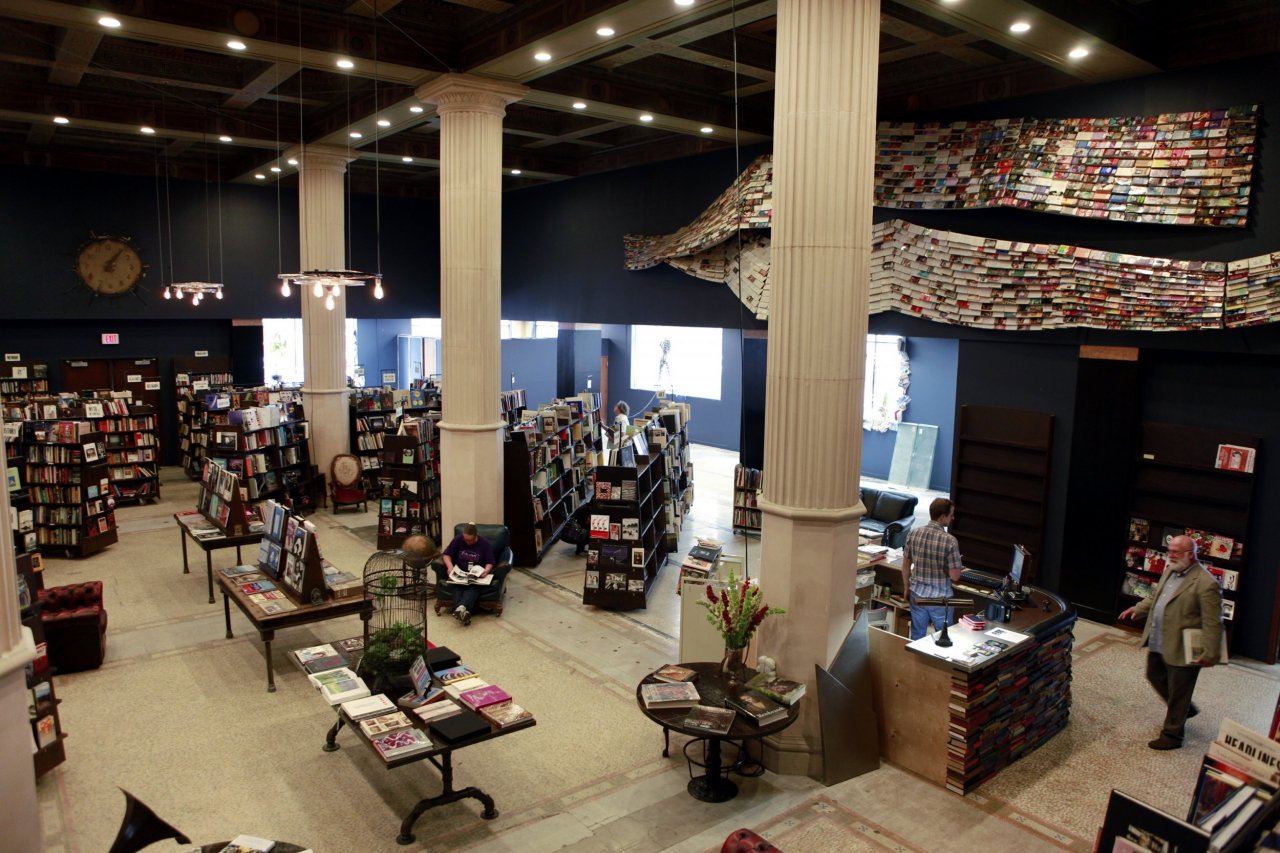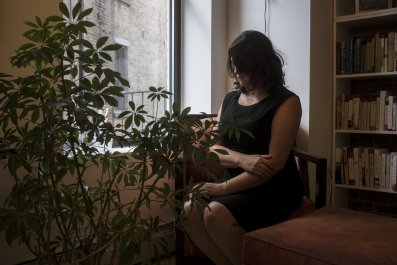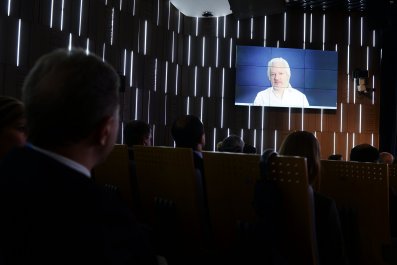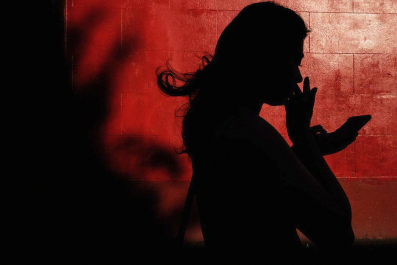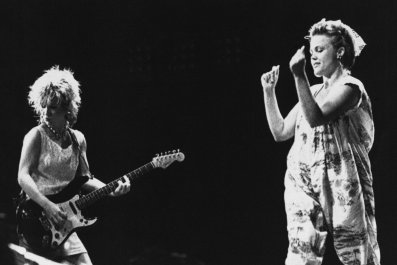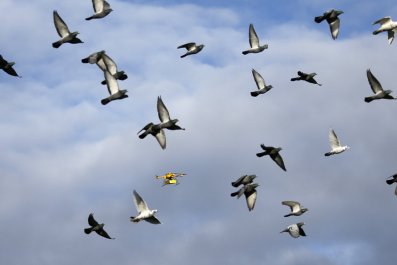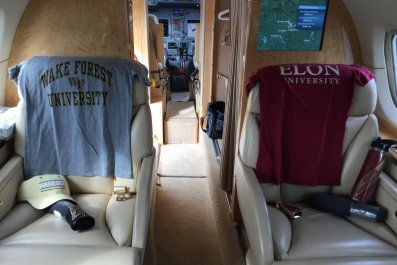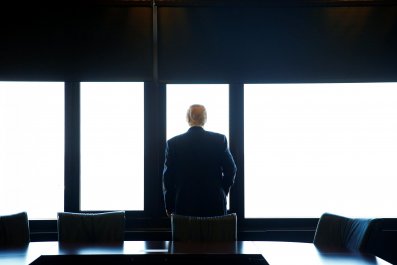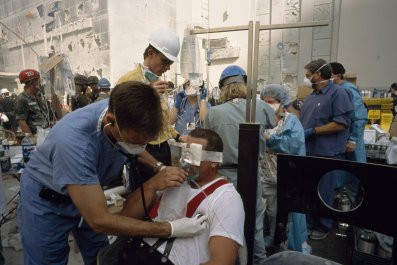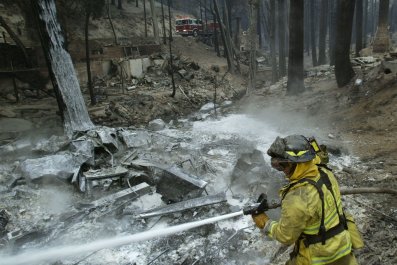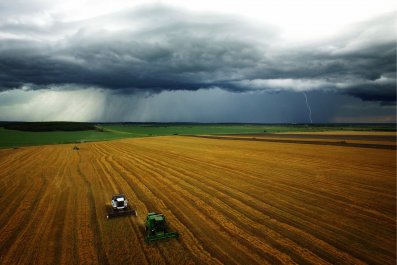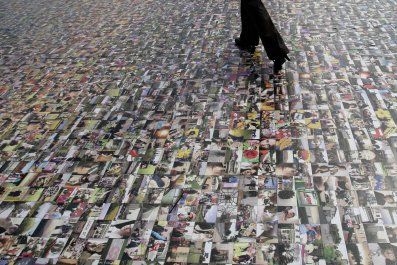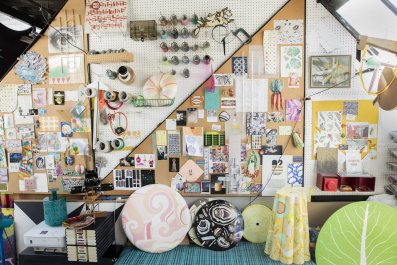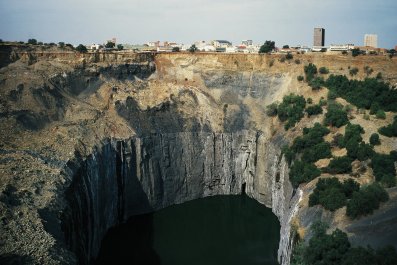Nobody in Los Angeles reads, right? They're all just running up and down Sunset Boulevard, thrusting scripts into producers' hands. It's a coming-of-age story about a young woman who discovers the meaning of love at an ISIS training camp.…
And nobody writes either, at least nothing longer than an Instagram post about spotting one of the Kardashian/Jenner demon spawn picking at a sliver of fat-reduced burrata, seasoned with a puff of scented air from Micronesia, on the patio of the Ivy. Does that sound true to you? If it does, you probably haven't been to the Southland since Woody Allen made Annie Hall. And you certainly haven't been to The Last Bookstore.
Located on the still-gritty stretch of downtown that abuts Skid Row, The Last Bookstore is a potent symbol of the resurgent literary fortunes of Los Angeles. It has also become one of the finest independent bookstores in the nation, rivaling acknowledged greats like the Elliott Bay Book Company (Seattle), Pegasus Books (Berkeley), Politics & Prose (where else but Washington, D.C.?), Tattered Cover (Denver), Greenlight (Brooklyn) and Three Lives & Company (Manhattan). That's my list. You probably have your own. Whatever else is on it, The Last Bookstore should be too.
Every great bookstore has a story, and The Last Bookstore's is now the subject of an expert 12-minute documentary by Chad Howitt that focuses on Josh Spencer, who opened his first store in 2009. He'd been selling books online for about a decade, as he continued to struggle with the aftermath of a 1996 car accident that robbed him of the ability to walk. The venture proved surprisingly successful, allowing Spencer to open a store that was more than just a domain name. "I think that the digital age has made print books more popular, in a weird way," Spencer says in Welcome to The Last Bookstore, which has him going through boxes of used books and doing fatherly things with his young daughter. "It's just made everyone come out of the woodwork who wants to see books survive."
Now in its second location, The Last Bookstore occupies the vast ground floor (as well as parts of the second) of the Crocker-Citizens National Bank building, where it sells about 250,000 titles, according to store manager Katie Orphan, who estimates that there are another 200,000 titles in a warehouse. About 80 percent of those, she believes, are used. But while the selection at The Last Bookstore is impressive, it is the setting that stands out, an airy and grandiose chamber at once comfortable and whimsical, with a tunnel fashioned out of books and two vaults turned into reading rooms.
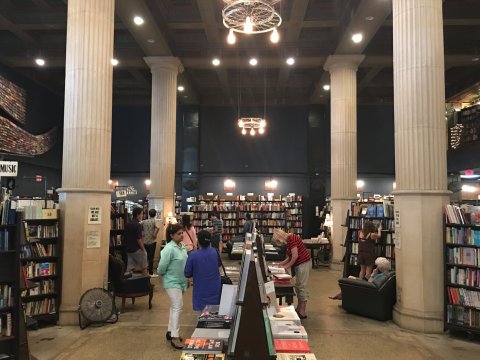
"The Last Bookstore is so unusual, it's hard not to think of the place as one giant mashup of Captain Nemo, Indiana Jones and The Phantom of the Opera," said local public radio affiliate KCRW in 2013. If there's anything to dislike about the place, it is the multitude of signage about the lack of bathrooms and lounging-time limits. I am not a fan of the bag check either.
Spencer's punky person is, superficially at least, closer to that of a metalhead than a poet. He opened The Last Bookstore as cultural and market forces were sending brick-and-mortar bookstores across the nation into the great paperless beyond. The enterprise has a name at once apocalyptic and hopeful, befitting its setting in Los Angeles.
"You're constantly hearing about the death of tangible books and a dropping literacy rate, so once I discovered the bookstore, it was like some sort of paradox," says Howitt, the film's director, whose primary occupation is shooting commercials. "Like it was breaking rules of space and time to exist. It's massive, in the heart of downtown LA, and it's always extremely busy."
The Last Bookstore is a sign that while the days of Charles Bukowski pulling up to the King Eddy Saloon are long gone, plenty of readers and writers are calling Los Angeles home these days. What's more, they're creating something many thought was inimical to this city of freeways and strip malls: a genuine community.
The Los Angeles Review of Books, for example, has in many ways outfoxed its graying New York competitor, its reputation burnished by a widely shared profile in The Hollywood Reporter this past spring that called the publication "a vibrant rebuke to outdated L.A.-as-cultural-wasteland cliches," citing wildly popular young-adult novelist John Green and actress Cameron Diaz as supporters, along with some guy named Tom Hanks.
When I ran Page Views, the literary blog of the New York Daily News, we mocked the literary scene in Los Angeles. We were answered, in the pages of the Los Angeles Times, by Hector Tobar, who wrote, "It's a city where a new American literature is being born. It's a city with a literary scene where all sorts of strange influences mix together (a little bit of Korea, a little bit of Mexico, a little bit of Iowa, a little bit of everywhere). On the other hand, maybe that's all just a bit too exotic, spicy and unexpected for your New York tastes."
I happily admit that Tobar is right.
Former Los Angeles Times book critic David Ulin wrote me in an email, "The Last Bookstore is a great bookstore, but it's not a symbol of renewal, except perhaps the more general renewal of downtown. The literary culture? That's been with us all along."
He might also have added that, unlike San Francisco and New York, Los Angeles is a big, thrumming city where an artist can still afford to live—and where Josh Spencer can sell books instead of designer clothing that only seven people will ever wear. The Last Bookstore may be the last gasp of the printed book, or maybe the resurgence of the same, as well as confirmation that reading Ulysses on an iPhone is not quite the experience we hoped it would be.
"I've lost things in my life much more traumatic than a business," says Spencer near the conclusion of Welcome to The Last Bookstore. "No fear."



